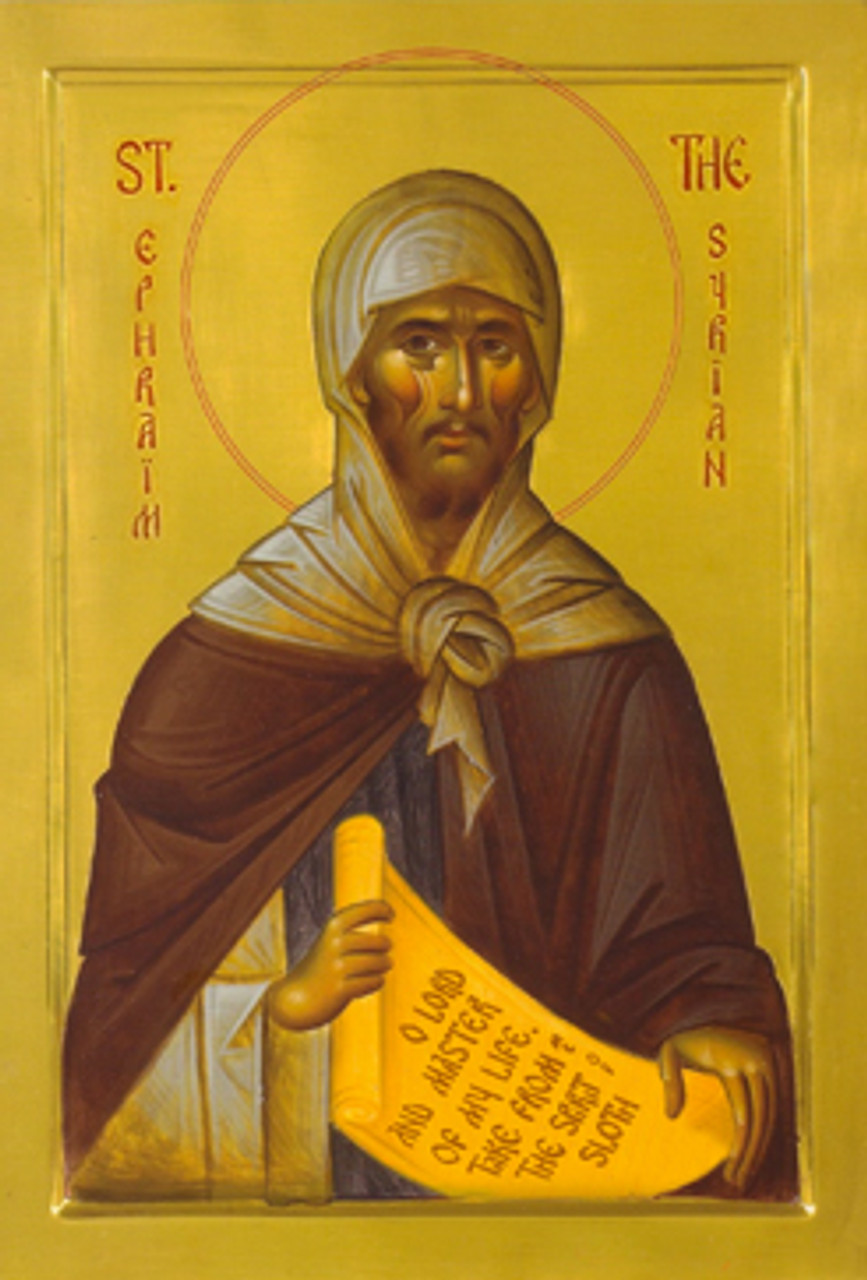
June 9
St. Ephrem the Syrian
Life (306?-373 A.D.)
Ephrem the Syrian was a native of Nisibis (now Nusaybin, Turkey). His parents were most likely pagan, but he was baptized at 18, and entered the service of the church. He was probably head of the famous Christian school at Nisibis, and there began to write the hymns for which he became famous. When the Christians were ousted from Nisibis, he went with them to Edessa (now Urfa, Turkey). There he embraced the life of a hermit and became a deacon. Out of humility he declined to ask for priestly orders. Despite his status of hermit, however, he remained active in the local church.
His learning was not broad, but was insightful. Hence he was called on to preach frequently, especially against current errors. He likewise wrote much on Catholic doctrine.
Heretics of his day often cleverly communicated their false tenets by teaching the people to sing hymns doctrinally erroneous. Ephrem took a leaf out of their books, writing and popularizing hymns that were doctrinally correct. While his commentaries on scripture were in prose, most of his doctrinal writings were in this hymn format. They had special appeal in that the author infused them with his own warm and winsome spirit - one that has been compared to that of St. Francis of Assisi.
In one of his “Nisbene Hymns”, for instance, St. Ephrem wrote:
"You alone and your Mother are more beautiful than any others; for there is no blemish in you, nor any stain upon your Mother. Who of my children can compare in beauty to these?
In another writing he praised the Upper Room of the Last Supper: “O blessed spot! No man hath seen or shall see the things which thou hast seen. In thee the Lord Himself became true altar, priest and bread and chalice of salvation. He alone sufficeth for all, yet none for Him sufficeth. Altar He is and lamb, victim and sacrificer, priest as well as food.”
These two hymns bear witness to the tradition of Mary’s sinlessness and to the real presence in the Eucharist. Equally profound is the saint’s hymn on the nature of God:
“To Moses He revealed His name: WHO AM, He called Himself, Which is the name of His essence. And never did He name any other with this name, as He did with His other names, with which they were named; therefore by this one exclusive name He let it be known that He alone is BEING, which can be said of no other.”
In short, God is the only one who IS, of Himself. Whatever being we creatures have is a sharing He has given us in His own being.
About 370 A.D. Ephrem journeyed to Caesarea in Cappadocia, Asia Minor to pay a visit to its famous bishop, St. Basil the Great, and his brother, St. Gregory of Nyssa. All three would eventually be designated Doctors of the Church. There must have been a happy meeting of minds.
The last time that St. Ephrem left his hermitage for duty’s sake was in the winter of 372-73, after a terrible famine had stricken the land. Local men of wealth refused to aid the starving on the pretext that they didn’t know anybody trustworthy to supervise the relief work. Ephrem came in without delay, and capably administered food to the hungry. He even rounded up 300 litters on which to carry the disabled. Everybody was satisfied with the efficiency with which he met the emergency. His success was all the more notable in that he was by then well on in years.
As a matter of fact, Deacon Ephrem died in his hermitage just a month after the crisis was over. As an early biographer said of this “Harp of the Holy Spirit”, “God gave him this occasion to win the crown in the close of his life.”
--Father Robert F. McNamara
Death is annihilated, night has vanished, and the gates of Sheol are broken.
Creatures lying in darkness from ancient times are clothed in light.
He brings salvation and grants us life. He ascends to his Father on high.
He will return in glorious splendor and shed His light on those gazing upon Him.
All-powerful Father,
who called the deacon Ephrem
to serve you in' the monastic life
and to sing your praise
as the harp of the Holy Spirit:
give us hearts alive with love
that we may sing of our redemption
through Jesus Christ your Son our Lord,
who lives and reigns with you,
in the unity of the Holy Spirit,
God, now and for ever. Amen. (English Missal)